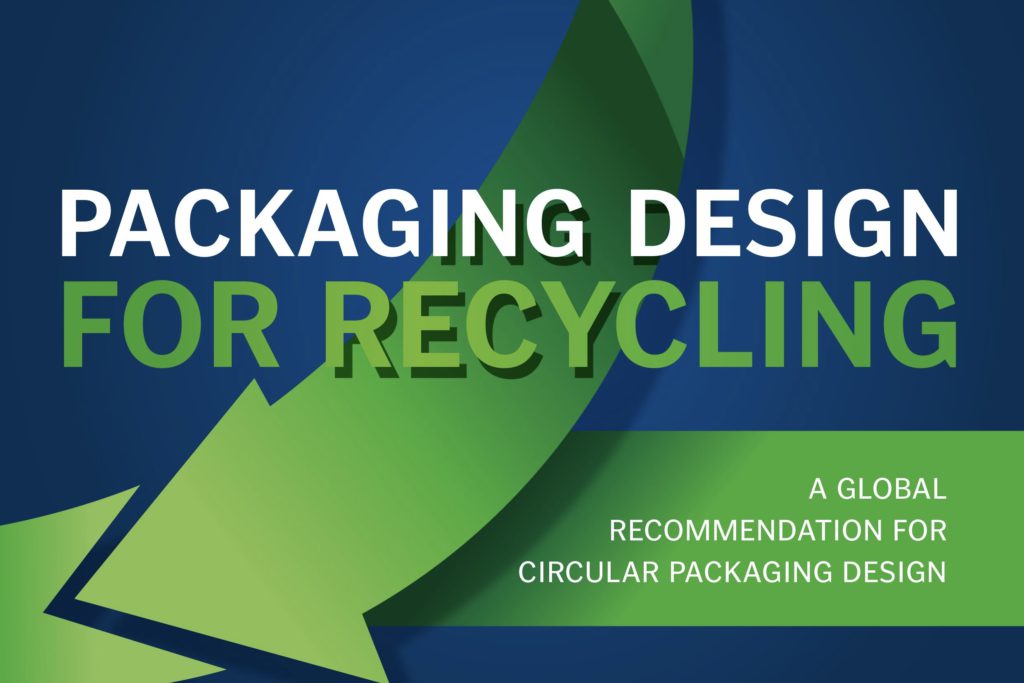After recyclass, apr certifies the recyc...
Albéa has just been granted recognition from the Association of Plastic Recyclers (APR) for its printed extruded tube
Albéa has just been granted recognition from the Association of Plastic Recyclers (APR) for its printed extruded tube
Asahi YOU. US, Ltd.
With over 500 billion PET bottles consumed globally every year, and many of those 500 billion turning up as waste in
Creative agency Hell Yeah!
The long-awaited proposal for the revised European regulation on packaging and packaging waste was published Nov.
A global ‘Packaging Design for Recycling Guide’ has been developed by ECR Community (Efficient Consumer Response – www.ecr-community.org), WPO (World Packaging Organisation – www.worldpackaging.org) and FH Campus University of Applied Sciences (www.fhcampuswien.ac.at), Austria, and is available for download.
Design for recycling is part of circular product design and represents an important basis for holistic sustainability assessment. Accordingly, circularity means that the packaging is designed in such a way PRESS RELEASE that the highest possible recycling of the materials in use can be achieved. The goals here are resource conservation, the longest possible service life, material-identical recycling (closed-loop recycling) or the use of renewable materials. Circular packaging should therefore be designed and manufactured in such a way that it can be reused (reusable solution) and/or that the raw materials used can be reused to a large extent as secondary raw materials after the use phase (recycling) and/or consist of renewable raw materials.

Avery Dennison’s WB0030 wash-off adhesive has been approved by bottle deposit systems Returpack in Sweden and Infinit
Fast food chains have revolutionised the way we eat. Order a quick meal, get it packed and finish it off in no time.
Qatar’s Supreme Committee for Delivery & Legacy (SC) and Coca-Cola Middle East announced the introduction of 100%
Ecolean is working to optimise the entire lifecycle of the raw materials it uses in its packages – from production to end-of-life package recycling – towards the circular use of resources.
“We take a life-cycle perspective on the raw materials we use,” says Anna Palminger, Sustainability Director. “This involves making resource-efficient packages and helping our customers to use less packaging material, to promoting the consumer recycling of our packages.”
Ecolean’s operations sent no waste to landfill in 2020. 97 percent of the waste produced at its plants was sent for recycling, two percent was treated as hazardous waste and one percent was sent for energy recovery.
“During 2020, our packaging production plants focused on reducing production waste through continuous improvements and standardising work,” says Palminger. “This has resulted in further improvements to our processes, and we are making additional improvements in 2021.”
With many countries lacking collection systems for plastic packaging and approximately 2 billion people worldwide not having access to waste management in general, improving waste management and recycling infrastructure is a priority. By engaging and sharing knowledge with the recycling industry and through dedicated recycling projects, Ecolean enhances the opportunities for recycling its packages.
Ecolean is a member of initiatives such as the European project CEFLEX (a circular economy for flexible packaging) and Collect & Recycle (CoRe) in Pakistan, to enable the recycling of Ecolean packages in various markets.
“Recycling is essential for the sustainable use of packaging and is a major priority for our business,” says Anna Palminger. “We design our packages to ensure they are easy to sort and recycle and will launch a new packaging range, designed for easier recycling by 2025 at the latest, and we support local recycling schemes and projects – all to boost the recyclability of our packages.”
“Circularity – the processes of ensuring the continuous reuse of resources with zero waste – is our visionary target going forward,” says Peter L Nilsson, CEO, Ecolean Group. “We have made progress in our own operations and through recycling partnerships around the world, but there is much more to be done. In order for food packaging to use recycled packaging material, which today is hindered by food safety legislation, we need to see a shift in recycling technologies. The development of chemical recycling could potentially be an answer to this challenge. Ecolean strives to contribute to the development of new technological solutions in order to boost plastic food packaging recycling any way we can in the coming years.“
Read more about Ecolean’s life-cycle perspective and recycling initiatives in the Sustainability Report 2020.
Together with long-term Ecolean customer Mengniu, which is among the top ten largest dairy companies globally, Ecolean arranged a series of sustainability awareness events in China during December 2020. A temporary collection site for the recycling of Ecolean packages was established, with the purpose of highlighting environmental awareness and the importance of collecting and recycling packages.
Designing packages for recycling means that packages are composed of material that can be easily sorted and recycled where applicable collection and sorting systems are available. The transparent Ecolean packaging ranges, both Ecolean Air Clear and Ecolean Air Aseptic Clear are certified as ‘Designed for Recycling’, when evaluated by SUEZ.Circpack. The certification provides third-party verification that the packages are recyclable where recycling systems for mixed polyolefin plastic are available.

70 per cent less plastic and completely recyclable materials: the southern German supermarket chain Feneberg,